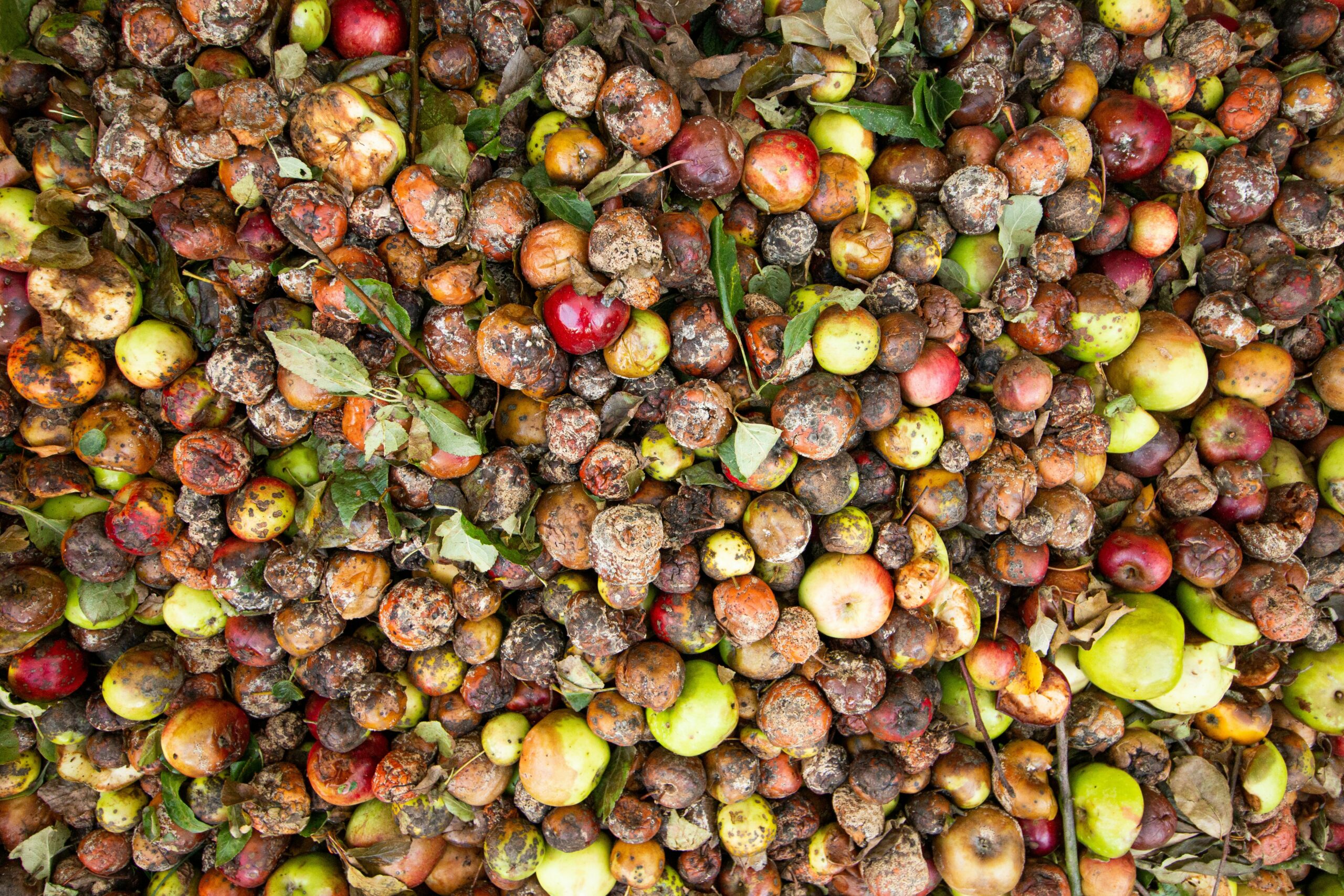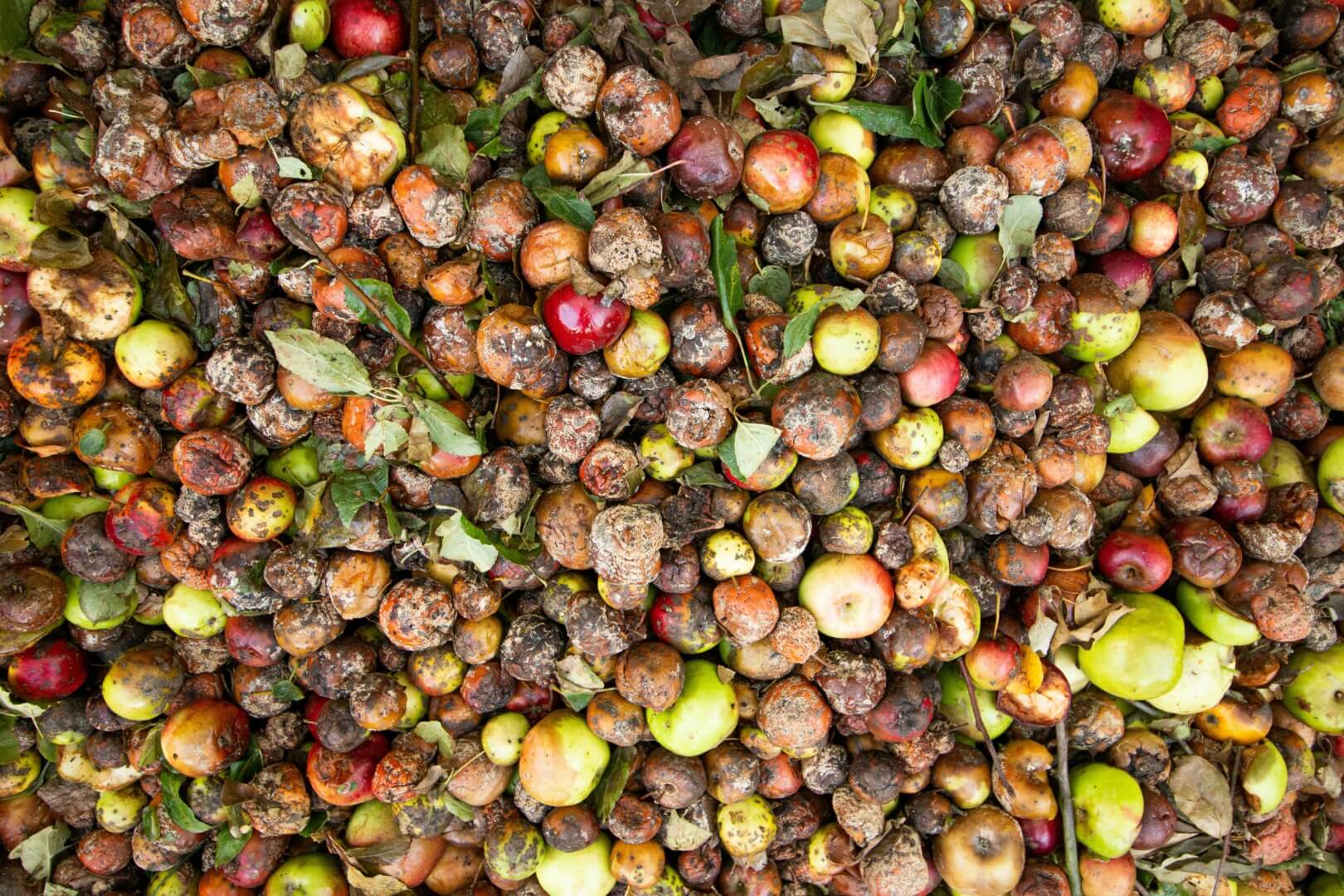The growing scarcity of non-renewable resources has always been a matter of concern for the general public. However, the opposite—the over-abundance of renewable resources—is rarely an issue worthy of grievance. As production technology has rapidly evolved to minimize the scarcity of almost any product, a new problem has arisen: overproduction. Today we are focused on an issue linked to exactly that: food waste.
According to the Food and Agriculture Organization of the United Nations, more than one-third of the food produced throughout the world every year is wasted. Understandably, significantly more food is wasted by developed nations than in countries where poverty is rampant and people value food more.
Although the impact of food waste is financially staggering—1 trillion dollars worth of food is wasted yearly, the environmental impact of food waste is what society should be concerned about the most. The greenhouse emissions that are a direct consequence of food waste, cumulatively rank just behind the U.S. and China when it comes to the amount of pollution that is produced every year.
Furthermore, when gauging the negative impact of food waste, one cannot overlook the water that is dissipated throughout the production process of food that is never consumed. Per research carried out in 2009, wasted food accounts for more than 25% of total freshwater use.
All these facts do not even take into account the biggest food-waste issue of them all: the moral quandary. With 821 million people world-wide facing chronic food deprivation, it is agonizing to consider that all these people can be fed by the food we waste—many times over.
Today, on this week’s edition of Deal of the Week, Impakter takes a look at the startups currently attempting to solve this harrowing crisis.

This is the first startup out of Boston, Massachusetts, to be featured on Deal of the Week. Founded in 2017, the startup focuses on the sale and distribution of Grade B produce. Established by the United States Department of Agriculture, food grades indicate the quality of products, with Grades B through D containing “product with less desirable characteristics in appearance and/or edibility.” As a result, lower grade products often have to be sold at a large discount—if they are even sold at all. The lower margins often do not provide enough incentive for the inferior product to be pushed to market, especially when there is an abundance of Grade A produce anyway.
BRÜZD Foods intercepts produce on its way to disposal and delivers it to customers throughout Boston at a cheap price. This Grade B food is in no way inferior in taste, nor in freshness, when it comes to its Grade A counterpart. Merely, the food is not visually appealing, and therefore it is often worthy of a second chance, especially for the discount that the opportunity provides. BRÜZD Foods is currently in its seed round.
RELATED ARTICLES:
 Deal of the Week: The Push Towards Sustainable Fashion
Deal of the Week: The Push Towards Sustainable Fashion
 Deal of the Week: Sustainable Cargo Shipping Solutions
Deal of the Week: Sustainable Cargo Shipping Solutions
 Deal of the Week: The Uphill Battle for Better Air Quality
Deal of the Week: The Uphill Battle for Better Air Quality

Unlike the previous startup, FoodMaven, based out of Colorado Springs, is well past its seed round and has received not only the attention of the press, but also investment from various business moguls in the food distribution space. FoodMaven’s customer is not the individual consumer, but rather, the company captures and sells produce directly to foodservice buyers at restaurants and institutions via their online platform.
Despite its discounted price, the produce sold by FoodMaven is often in no way inferior in quality to what can be found at a grocery store. The company focuses on selling food that is oversupplied, out-of-spec, and local—harnessing the inefficiencies of the produce market in order to curb food waste and generate revenue.
FoodMaven enables producers to no longer rely on distributors to sell their food by providing a channel that directly links the producers to their clients. As a result, the produce can be sold at a lower price and at a lower cost, allowing both sides of the transaction to benefit. Furthermore, FoodMaven donates the food that it is unable to sell to hunger relief efforts.
It was important to include FoodMaven in this article, as this is a solution that has actual momentum behind it, by being an established, recognized, and quickly growing business—demonstrating that some solutions to combat food-waste have actual merit to them.

Yet another startup based in Boston, Food for All has created an impressively-simple mobile solution to combat food waste in restaurants. Upon opening the app, a user receives a plethora of offers from participating NYC or Boston restaurants to purchase their extra, unsold meals at half the price. After placing the order, the user can than pick up their food at a time specified by the restaurant.
Not only is the app curbing food waste, but it is also aiding the lives of people who are at the mercy of the ever-expensive metropolitan dining options. The restaurants also come out a winner in this scenario as unsold ingredients do not go to waste, this increasing profit. This is a solution that I have embraced personally, and as the roll-out of the service continues I hope that more people will follow suite.
The Bottom Line
To conclude, as seen throughout this article, there is an assuring number of solutions currently being attempted in order to combat food waste. Of all the issues currently posing a threat to the environment and the overall well-being of the world’s population, food waste is an issue that is actually being tackled. This sentiment is bolstered by the venture capital flowing into this quickly growing startup space, as indicated by Bloomberg. Perhaps, if someone can demonstrate the economic inefficiencies and subsequent business opportunities in other environmental crisis, those problems might start being addressed too…
In the cover photo: A pile of clothes. Photo Credit: Staticflickr
EDITOR’S NOTE: The opinions expressed here by Impakter.com columnists are their own, not those of Impakter.com.















